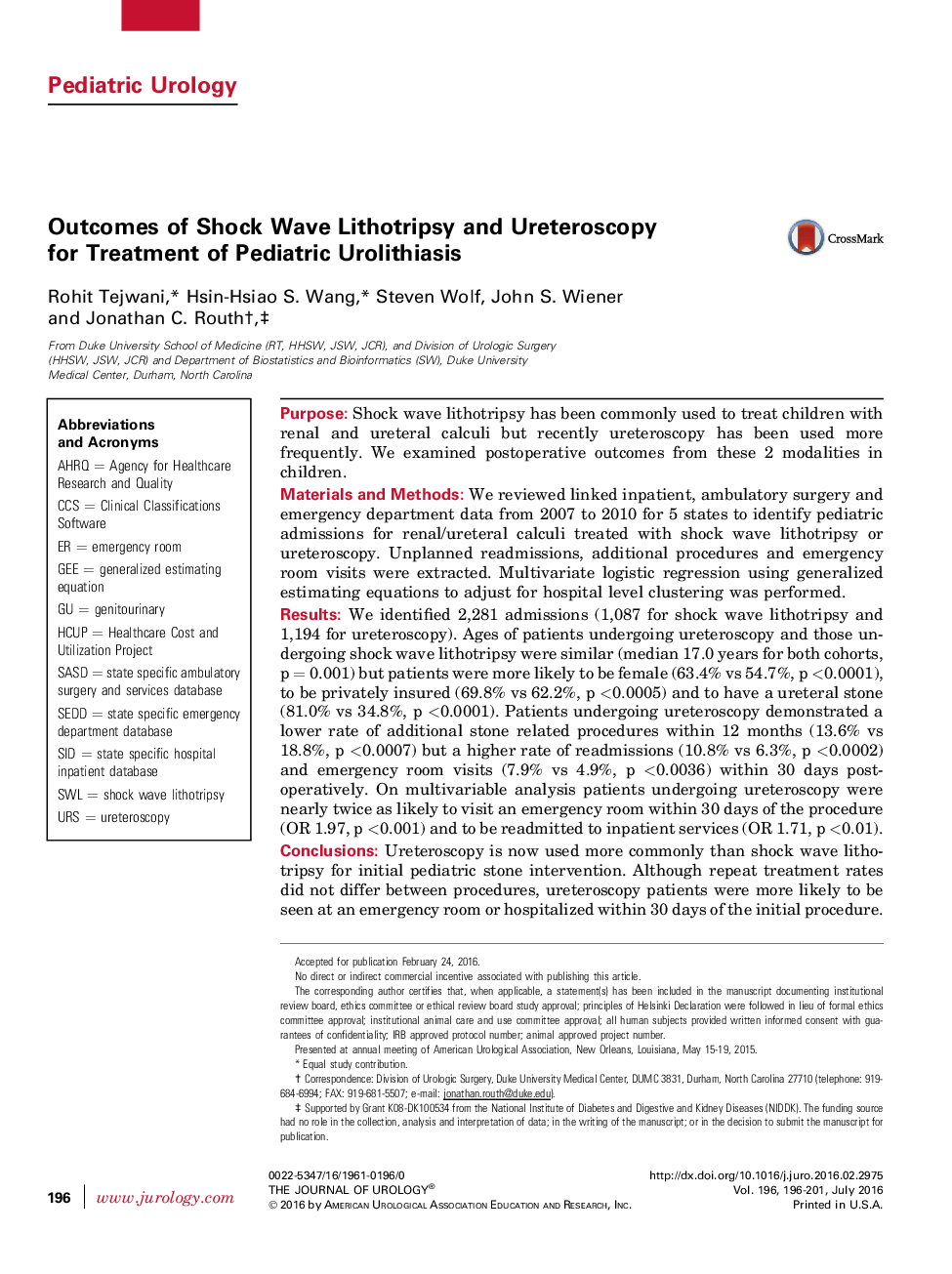| Article ID | Journal | Published Year | Pages | File Type |
|---|---|---|---|---|
| 3858175 | The Journal of Urology | 2016 | 6 Pages |
PurposeShock wave lithotripsy has been commonly used to treat children with renal and ureteral calculi but recently ureteroscopy has been used more frequently. We examined postoperative outcomes from these 2 modalities in children.Materials and MethodsWe reviewed linked inpatient, ambulatory surgery and emergency department data from 2007 to 2010 for 5 states to identify pediatric admissions for renal/ureteral calculi treated with shock wave lithotripsy or ureteroscopy. Unplanned readmissions, additional procedures and emergency room visits were extracted. Multivariate logistic regression using generalized estimating equations to adjust for hospital level clustering was performed.ResultsWe identified 2,281 admissions (1,087 for shock wave lithotripsy and 1,194 for ureteroscopy). Ages of patients undergoing ureteroscopy and those undergoing shock wave lithotripsy were similar (median 17.0 years for both cohorts, p = 0.001) but patients were more likely to be female (63.4% vs 54.7%, p <0.0001), to be privately insured (69.8% vs 62.2%, p <0.0005) and to have a ureteral stone (81.0% vs 34.8%, p <0.0001). Patients undergoing ureteroscopy demonstrated a lower rate of additional stone related procedures within 12 months (13.6% vs 18.8%, p <0.0007) but a higher rate of readmissions (10.8% vs 6.3%, p <0.0002) and emergency room visits (7.9% vs 4.9%, p <0.0036) within 30 days postoperatively. On multivariable analysis patients undergoing ureteroscopy were nearly twice as likely to visit an emergency room within 30 days of the procedure (OR 1.97, p <0.001) and to be readmitted to inpatient services (OR 1.71, p <0.01).ConclusionsUreteroscopy is now used more commonly than shock wave lithotripsy for initial pediatric stone intervention. Although repeat treatment rates did not differ between procedures, ureteroscopy patients were more likely to be seen at an emergency room or hospitalized within 30 days of the initial procedure.
